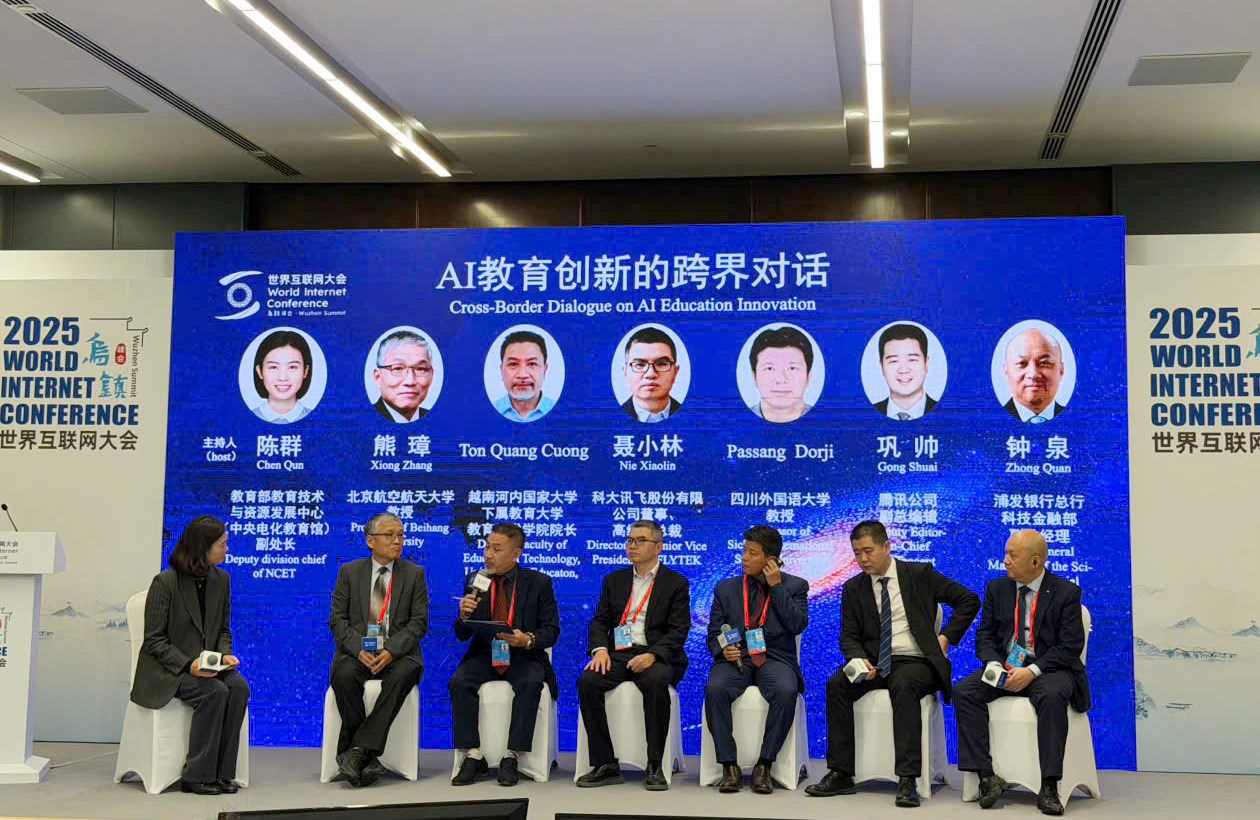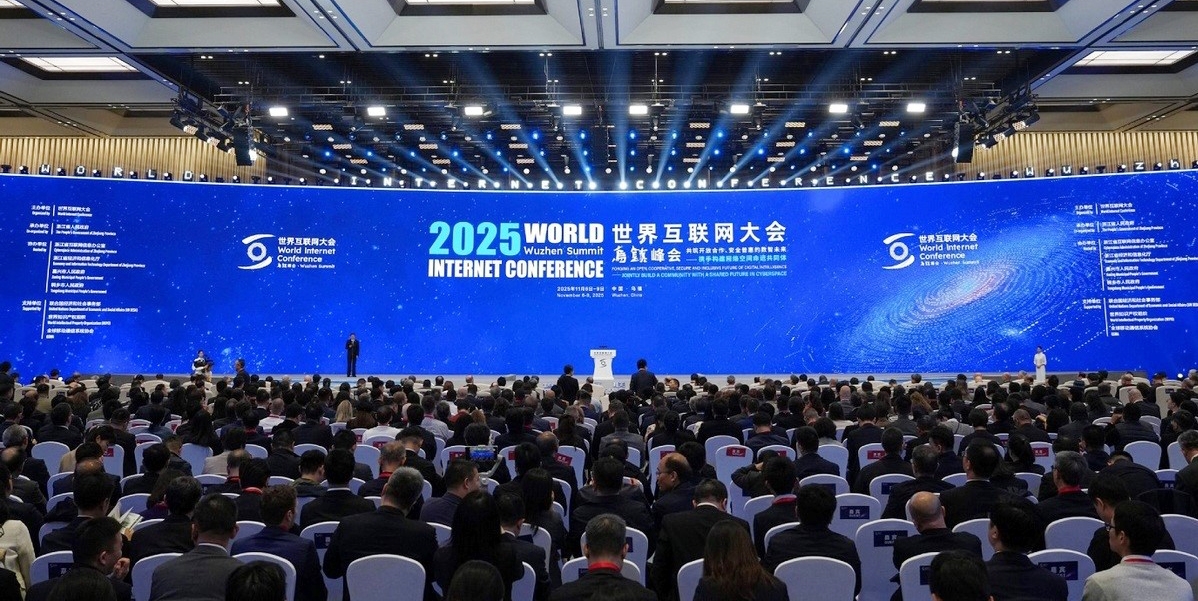In response to the invitation from the Office of the Cybersecurity Committee of China, the China Internet Associations Federation, and the Center for the Development of Technology and Educational Resources (also known as the National Center for Educational Technology, NCET, under the Ministry of Education of China), representatives of VNU participated in the 2025 Wuzhen Summit of the World Internet Conference (WIC).
 |
The 2025 Wuzhen Summit of the World Internet Conference (WIC) is one of the most significant global events on digital technology, innovation, and internet governance. This year marks the 10th anniversary of the proposal to build a "Cyber Community for Shared Future." The conference took place from November 6 to 9, 2025, in the ancient town of Wuzhen, Zhejiang, China, bringing together over 1,600 delegates, including international leaders, inventors, academic experts, entrepreneurs, and pioneering educational organizations from more than 130 countries and regions.
With the theme "Forging an Open, Cooperative, Secure and Inclusive Future of Digital Intelligence – Building a Community with a Shared Future in Cyberspace," this year's agenda focuses on 24 specialized forums, reflecting the breakthrough development trends of the digital economy, artificial intelligence (AI), big data, digital transformation, digital education innovation, and technology governance issues.
As part of the conference, Dr. Ton Quang cuong, Head of the Department of Educational Technology at VNU University of Education delivered a speech as a speaker in a parallel session on the topic "Intellectual Innovation for the Future: Artificial Intelligence Driving a New Framework in Education." The session was organized to exchange new, groundbreaking ideas on educational technology and teacher training, promoting collaborative efforts between governments, schools, businesses, and other stakeholders to contribute to building a fair and high-quality education system.
 |
He said that, this hyper-individualization naturally leads to the third transformation: viewing the School as a Dynamic Simulation Lab. The modern world operates through complex systems, yet traditional education often uses linear thinking. AI applications will foster a new mindset based on Complex Systems Thinking. In the near future, the school will be seen as a "Dynamic Simulation Lab" enabling learners to interact and make real-time decisions with a "simulated" society. This is the paradigm shift where AI is the launch pad for education to shift from teaching "The what?" to teaching "How to interact with complexity?"
He called upon policymakers, technologists, educators, and investors to commit to three key actions together: Invest in Architecture; Prioritize Ethics; Act for Equity.
